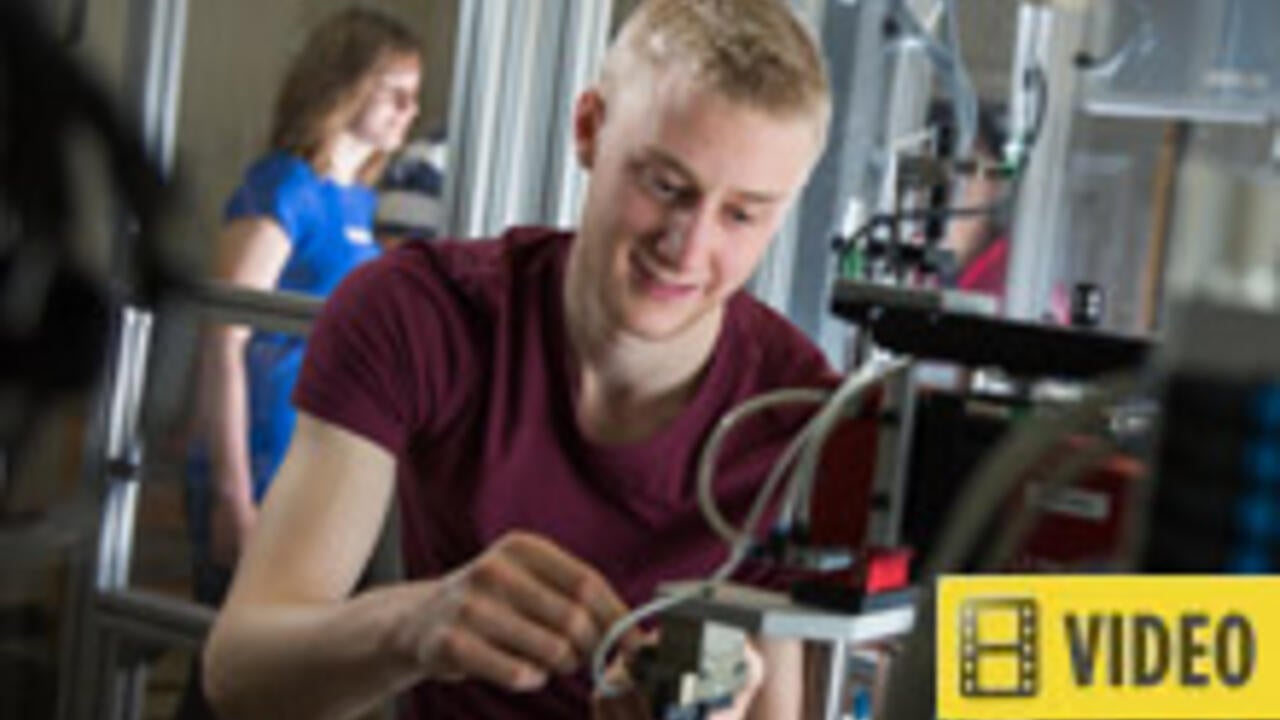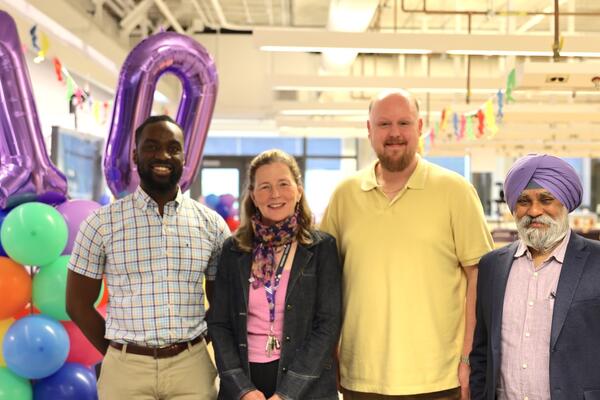
Bringing co-op experience into the classroom
Case studies from work terms help engineering students solve real-world problems

Case studies from work terms help engineering students solve real-world problems
By Lyndia Stacey Waterloo Cases in Design EngineeringWhile case studies have long been used to educate business students about problems in the business world, at the University of Waterloo they’re also being used by engineering students to learn about real-world problems that come up during their peers’ work terms.
Waterloo Cases in Design Engineering (WCDE) together with the Co-Operative Education and Career Action (CECA) are helping engineering students learn from the knowledge and skills they gain during co-op terms by developing case studies from student work term reports. In fact, the majority of the 170 case studies available to classroom instructors come from work terms.
Not only do students have the opportunity to share their technical experience from co-op and learn from their peers, this feedback loop is sustainable as the case studies are used across different engineering disciplines and terms. Since 2010, thousands of students have benefited from the use of these cases in class.
“When I see a case study in class and it's done by a fellow co-op student here at the University of Waterloo, I find it very intriguing. It's content that's based on another student's experience while they are at work, yet it's applicable to me in class,” says Michael Chiu, an electrical engineering student.

Electrical engineering student Michael Chiu
Watch the video below to see how case studies are increasing the impact of students’ co-operative education from the perspective of industry partners, instructors and students.

Read more
Redefining capstone learning by bringing students, faculty and community partners together to tackle real-world challenges

Read more
Here are the people and events behind some of this year’s most compelling Waterloo stories

Read more
The Pearl Sullivan Engineering IDEAs Clinic marks a decade of delivering experiential learning embedded in the real world and mentored by industry professionals
The University of Waterloo acknowledges that much of our work takes place on the traditional territory of the Neutral, Anishinaabeg, and Haudenosaunee peoples. Our main campus is situated on the Haldimand Tract, the land granted to the Six Nations that includes six miles on each side of the Grand River. Our active work toward reconciliation takes place across our campuses through research, learning, teaching, and community building, and is co-ordinated within the Office of Indigenous Relations.